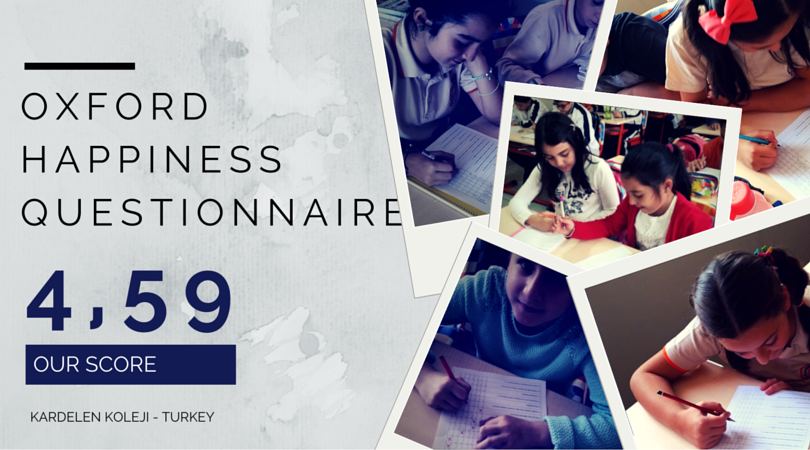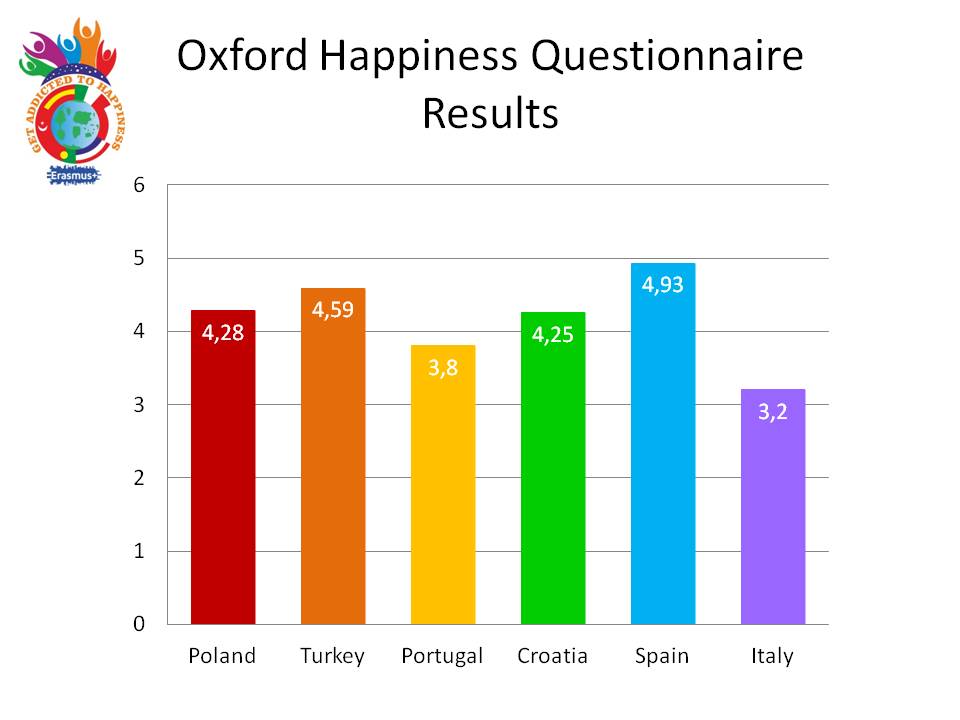
Can happiness be measured ? The Oxford Happiness Questionnaire attempts to do just that. Developed by Michael Argyle and Peter Hills of Oxford Brooks University, and originally published in 2002 in the Journal of Personality and Individual Differences, it's one several measures of 'subjective wellbeing' (happiness) constructed by scientific research psychologist.
INTERPRETATION OF SCORE
1-2 : Not happy. If you answered honestly and got a very low score, you’re probably seeing yourself and your situation as worse than it really is.
2-3 : Somewhat unhappy.
3-4 : Not particularly happy or unhappy. A score of 3.5 would be an exact numerical average of happy and unhappy responses.
4 : Somewhat happy or moderately happy. Satisfied. This is what the average person scores.
4-5 : Rather happy; pretty happy.
5-6 : Very happy. Being happy has more benefits than just feeling good. It’s correlated with benefits like health, better marriages, and attaining your goals.
6 : Too happy. Yes, you read that right. Recent research seems to show that there’s an optimal level of happiness for things like doing well at work or school, or for being healthy, and that being “too happy” may be associated with lower levels of such things.
 We asked all grade 6 students ( 100 children) and all our teachers (20 people) to participate in Oxford Happiness Questionnaire. Our score is 4,59
We asked all grade 6 students ( 100 children) and all our teachers (20 people) to participate in Oxford Happiness Questionnaire. Our score is 4,59
Oxford Happiness Questionaire - Turkey by Slidely Photo Gallery




